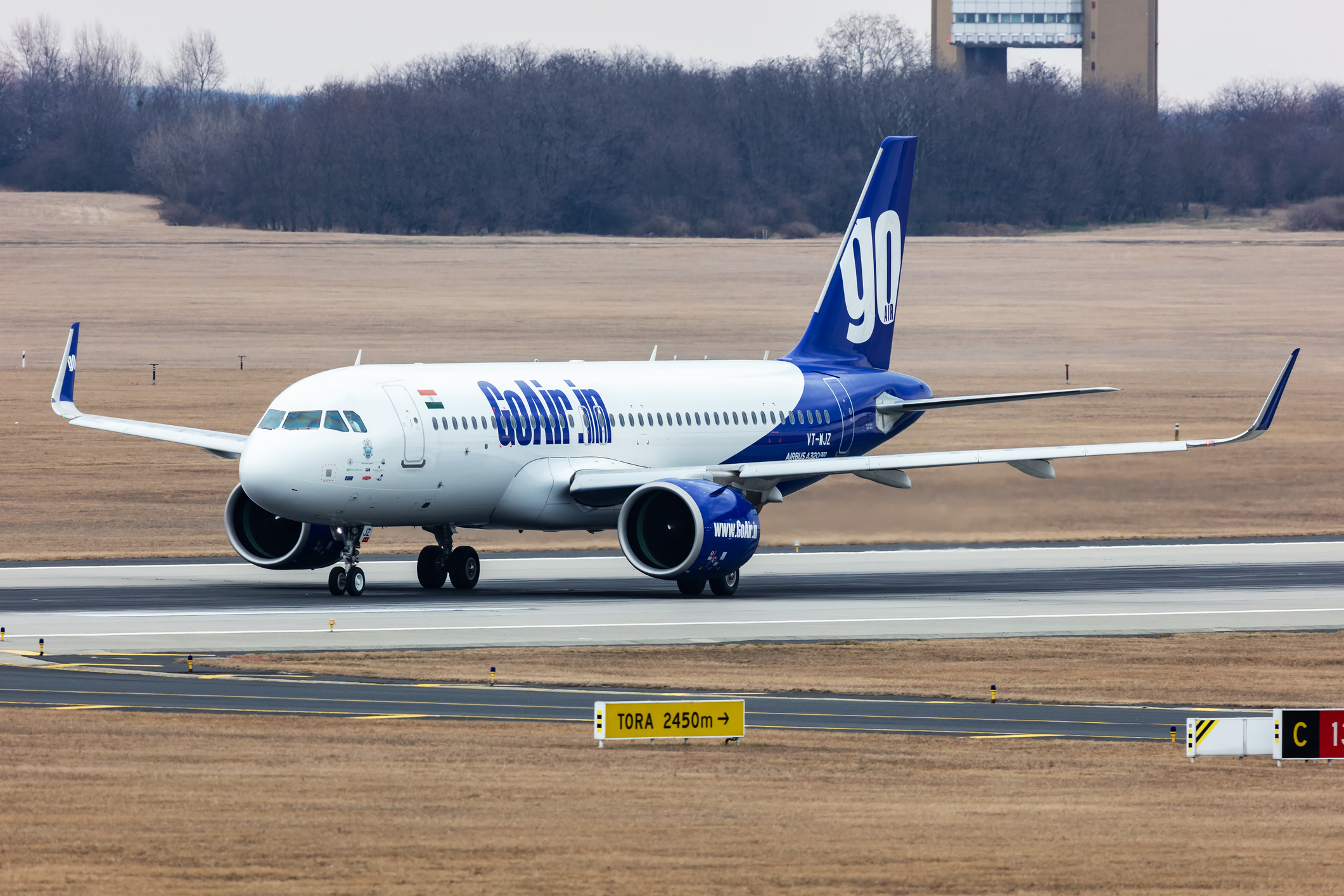The aviation industry has witnessed its fair share of turbulence over the years, with several major airlines succumbing to financial crises and filing for bankruptcy. In a recent development, Go First (formerly known as GoAir) added its name to the growing list of airlines facing insolvency when it voluntarily filed for insolvency in India in early May 2023 prompting intervention by the regulatory authorities and government.
The Directorate General of Civil Aviation (DGCA) responded swiftly to Go First’s insolvency application by issuing a show cause notice to the airline following the suspension of its flights. However, the airline found support from Mr. Jyotiraditya Scindia, the Minister of Civil Aviation, who urged Go First to make alternative arrangements for its customers to minimise inconvenience.
The primary reason cited for Go First’s sudden insolvency claim was the ongoing dispute over Pratt & Whitney (PW) supplied engines. The airline alleged that engine failures, coupled with the non-provision of spares by US manufacturer Pratt & Whitney, resulted in the grounding of nearly 40% of its fleet, leading to substantial financial losses and economic challenges.
Go First’s insolvency case is poised to have far-reaching implications for the Indian airline industry, particularly for lessors who provide a significant portion of the aircraft used by carriers.
The impact on lessors
Internal sources indicate that Go First’s grounding rate stood at 7% in late 2019, but it steadily increased, reaching approximately 30% in 2020 and a staggering 50% by the end of 2022 (Source: Zee News).
SMBC Aviation Capital, one of the world’s largest aircraft lessors, has expressed concerns about India’s restrictions on lessors reclaiming their leased aircraft. This restriction threatens to undermine confidence in the Indian aviation market, affecting both domestic and foreign lessors. Between 2018 and 2022, nearly three-quarters of aircraft deliveries in India were facilitated through sale and lease deals (Source: Reuters), significantly higher than the global average of 35%.
Go First’s engine troubles are not isolated incidents. Lufthansa, Germany’s international flag carrier, also faced similar issues with PW-supplied engines, resulting in the grounding of a third of its fleet. IndiGo, another prominent Indian carrier, encountered engine problems back in 2016 after adopting PW engines, leading to delays, cancellations, and emergency landings. Eventually, IndiGo transitioned to engines supplied by CFM International, PW’s competitor.
Unlike IndiGo, Go First has not received compensation from PW, despite a Singapore International Arbitration Centre (SIAC) award ordering PW to provide serviceable spare leased engines by April 2023 and additional engines each month until December 2023 to aid financial recovery and normal operations.
The insolvency of Go First, filed under the Insolvency and Bankruptcy Code, 2016, imposes a 6 to 9-month moratorium period, depending on any extensions granted, during which lessors cannot repossess their leased aircraft. This situation creates significant economic losses for lessors as their assets remain stranded without generating any economic value. Moreover, lessors are unable to redirect these assets to mitigate their losses.
This mirrors the situations faced previously by Jet Airways and Kingfisher Airlines. Persistent airline insolvencies can negatively influence perceptions and lead to lessors demanding higher lease rates and stricter contractual terms and conditions. This, in turn, would result in challenges for Indian entities, including reduced leasing options, increased passenger costs, and reduced industry growth. Comparable situations have arisen in other jurisdictions, such as the United States and Brazil.
The challenge arises from the imbalance between lessors’ interests and debtors’ interests under local insolvency laws, where debtors can initiate insolvency proceedings with accompanying moratorium periods. The duration of this moratorium often becomes a point of contention, as lessors seek to minimise losses in the absence of revenue from grounded aircraft.
Efforts are needed to strike a balance that expedites the insolvency process while safeguarding lessors’ rights. The Cape Town Convention, signed in South Africa in 2001, aims to facilitate efficient financing of high-value mobile equipment and establish a universal framework for defaults.
In 2018, the Ministry of Civil Aviation proposed a Cape Town Convention Bill to give effect to this agreement. Article XI of the Convention, which addresses Remedies on Insolvency, offers a relatively shorter waiting period of two months (under Alternative A). This provision, coupled with other avenues, holds the potential to alleviate the challenges associated with airline insolvencies.
Prevention is better than cure
To predict and prevent insolvencies, tools like the Altman Z Score Model can be employed as insolvency prediction tools. This model considers various financial ratios to assess a company’s financial health. A Z score above 5.85 indicates safety, while a score below 3.75 indicates distress. In the case of Jet Airways, the Z score consistently placed the airline in the distress zone from 2008, accurately foreshadowing its eventual bankruptcy in 2019.
Recommendations for a pre-insolvency moratorium framework have also been suggested to enable companies to seek protection from creditors while maintaining effective management. Such a framework could offer a lifeline during financial crises, potentially involving state actors’ support. These measures, in conjunction with the Cape Town Convention Bill of 2018, can help create a more balanced approach to airline insolvencies, emphasising early detection and prevention.
The Go First insolvency case serves as a stark reminder of the challenges faced by the aviation industry. Balancing the interests of lessors, debtors, and other industry players is crucial to ensuring the stability and growth of the sector. By learning from past airline failures, implementing robust prediction models, and embracing international conventions, the industry can work towards mitigating the impact of insolvencies and fostering a more resilient and sustainable ecosystem.
Photo: 245922777 | Airplane India © Jozsef Soos | Dreamstime.com
